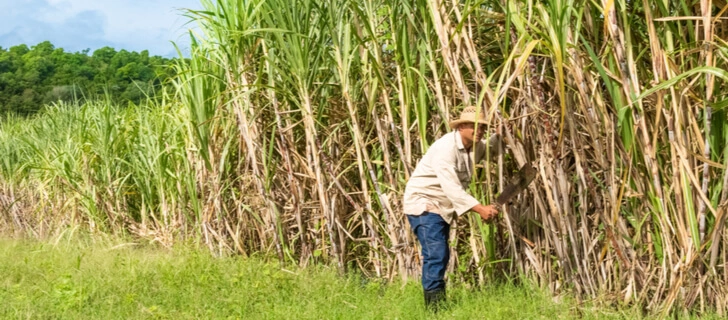Imagine a sugarcane field alive with harvesters, rows of freshly stacked coconuts ready for processing, and bustling industrial halls where raw produce is transformed into juices, concentrates, and packaged goods destined for both local markets and international shelves. This is the vision that Nu Agri Asia Corporation of the Philippines, together with Jose Global Consulting and Ghanaian partner Ghanol Ltd, is bringing to Ghana. Backed by a US$250 million investment, the consortium aims to modernize sugar production while scaling up coconut and multi-fruit processing, marking a bold step forward in the country’s agro-industrial ambitions.
Also Read: Agrico Scales Up: Introducing Southern Africa’s Largest PVC Pipes
Building the Future of Processing
Of the US$250 million commitment, US$129 million is allocated to establish a state-of-the-art sugar mill designed to crush 10,000 tonnes of sugarcane per day. The remaining funds will finance a coconut processing plant capable of handling one million coconuts daily, alongside large-scale fruit processing facilities. These numbers signal more than just industrial capacity—they represent Ghana’s drive to shift from being a net importer of sugar and processed goods to a regional exporter.
Designed for Scale and Sustainability
The project will be developed across 40 hectares, with 10 hectares dedicated to a solar farm that will supply clean energy. In addition, bagasse—the fibrous residue from crushed sugarcane—will be used as biomass fuel to generate steam and power the mill’s boilers. This hybrid model of solar and biomass energy is designed not only to reduce operating costs but also to minimize the project’s carbon footprint, aligning with global sustainability goals.
Farmers at the Heart of the Model
A key feature of the venture is its out-grower scheme. Farmers will be organized into cooperatives, directly participating as shareholders in the business. This inclusive model aims to align incentives, increase rural incomes, and integrate smallholders into the broader agricultural value chain. Nu Agri Asia has also highlighted its corporate social responsibility commitments, ensuring that community benefits extend beyond just economic returns.
Government Support and National Impact
Ghana’s Minister of Agriculture, Hon. Eric Opoku, praised the investment, emphasizing its potential to reduce dependence on sugar imports while opening up opportunities for export to regional and global markets. With government involvement through a public-private partnership model, the project is expected to gain the necessary approvals and align with Ghana’s broader agricultural development strategy.
Regional Competition and Growth Opportunities
This investment comes amid heightened interest in Ghana’s sugar industry. Earlier this year, Dangote Sugar announced plans to establish a mill in Kwame-Danso with a crushing capacity of 12,000 tonnes per day. The entry of multiple players underscores Ghana’s position as a rising hub for agro-industry in West Africa. Collectively, these projects could reshape supply chains, reduce import costs, and generate thousands of jobs across farming, processing, and logistics.
Why This Matters
In the short term, the project will create construction jobs, boost demand for local services, and inject capital into farming communities. Over the medium term, the sugar mill and processing plants will reduce the national import bill and foster complementary industries such as packaging, storage, and transport. Looking long term, the cooperative ownership structure could create sustainable income streams for farmers while ensuring a steady raw material supply for manufacturers. The dual use of solar and biomass power further demonstrates a balance between profitability and community impact.

What Comes Next
Key elements to watch include the project’s timeline, land acquisition processes, and permitting. The terms of farmer participation—such as contract pricing and cooperative shareholding—will be crucial to its success, as will environmental and social safeguards.
Ultimately, Nu Agri Asia’s US$250 million bet is more than an industrial project. It is a blueprint for a modern agricultural economy—one that connects farmers to factories, integrates renewable energy into production, and links Ghana’s domestic demand with export potential. If executed effectively, it could be the transformative investment that propels Ghana’s agricultural sector into a new era of competitiveness and growth.